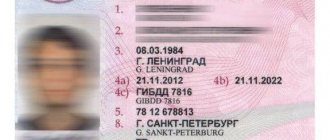Types of pickpocketing and elements of crime
If we talk about pickpocketing and its types, there are a large number of them. There is no limit to the imagination of criminals in this matter, and their victims are citizens of all ages and both sexes.
The most common places where such crimes are committed are public transport, as well as places with large crowds of people (shopping centers, cinemas, concert halls, etc.).
If we talk about time, a high percentage of pickpocketing occurs on holidays and pre-holidays, as well as tourist seasons in large cities.
Thieves can be both men and women. The so-called guest performers, as they are popularly called, pose a particular danger. These are individuals who travel across regions or cities with the aim of stealing citizens’ belongings and then selling them to ensure a decent living.
The most common types of pickpocketing:
- with covering of the hand (the criminal commits an act by covering his hand with a book/cloak or other object);
- with cutting of clothes (the offender makes neat cuts on the victim’s clothes or bag and takes out valuable items. Cameras or phones on straps are also taken);
- simple (the thief approaches the victim closely and rummages through his pockets or bag while he is unaware of anything).
How to protect yourself from pickpockets
The best way to protect yourself from street theft is to be alert. Pickpockets always choose a victim from among absent-minded or distracted people who do not pay due attention to their personal belongings.
The percentage of detection of pickpocketing is quite low, and the likelihood that the criminal will be caught and return your property and money is actually small. That is why the prevention of pickpocketing is so important, because it is much easier to prevent a crime. The easiest way to do this is to keep your property completely under control in public places.
In order not to be left without money and valuables, you should also know the basic techniques that pickpockets use to divert attention.
Ways to commit pickpocketing
Pickpockets commit thefts in a variety of ways. Sometimes these are professional “cutters” who deftly cut bags, briefcases and backpacks with a blade or a sharpened coin, taking advantage of our carelessness.
The so-called “tourists” always work in a group: while one distracts the victim’s attention, the other takes valuables out of the bag, often handing them over to a third party. This method is the most common because it complicates the search and capture of the criminal.
“Shirmachi” use foreign objects as a cover - a newspaper, a hat, a cloak cover the moment of the theft from prying eyes, and from the outside the thief’s actions are more difficult to notice.
A thief may point out supposedly soiled clothing and begin to shake it off, picking out your pockets in the meantime. Or pretend that he was pushed towards you - as if hugging him, at that moment pull out the contents from the bag.
Often criminals can play the role of someone who needs help, asking you to show them the way. This could be a charming girl, or an intellectual with glasses, who looks completely different from the stereotype of a criminal. Be vigilant, the safety of your property directly depends on this.
Backpack against pickpockets and other tricks
Experts say that there is no 100% protection against tweezers. However, over the past few years, special backpacks with protection against pickpockets, whose manufacturers guarantee complete safety of the contents, have been gaining popularity.
This is a modern invention that is magnificent in its simplicity and functionality. The design of the backpack contains many high-tech developments, from zippers hidden in special hard-to-reach folds to a unique fabric that cannot be cut by hand.
The Bobby anti-pickpocket backpack, which got its name from the nickname of police officers in England, was created by the Dutch company XD Design. You can learn more about the secrets of a backpack from thieves by following the link.
Perhaps, such a backpack will serve as truly reliable protection, but we do not advise anyone who does not yet own such an accessory to be upset. A few simple rules will help you avoid financial and property losses:
- Keep bags with valuables and a wallet out of your sight; don't keep them on the side or back, as this will make them more difficult to control.
- It is better to hold a backpack in public places not on your shoulder or back, but in your hands.
- Do not carry valuables, documents, money or phone in your back pockets.
- The larger the wallet, the more difficult it is to remove it from your bag without being noticed. It can also be attached to the bag with a special chain.
- Do not attract the attention of intruders - do not take out a wad of money in crowded places, do not count large sums.
Qualification of crimes
To establish that the theft of a wallet, phone or bag actually took place, the compliance of the offense committed with the elements of the crime is considered.
One of the most important qualifying features is the secrecy of the theft.
The main condition for qualifying it as a theft is that it took place secretly, that is, the criminal himself must believe in it. It does not matter whether there were any witnesses during the crime and whether they realized the illegality of the act committed.
The object of the act is the relationship to a certain form of property, and the subject is any objects of the material world.
The objective side is precisely the secret seizure of other people's property, but without the use of violence. After all, if it took place, then we are talking about robbery or robbery.
The subjective side is expressed in such a form of guilt as direct intent. This means that the criminal knew about the negative consequences of his act and wanted them to happen.
The subject of the act is a sane citizen who has reached the age of 14.
Qualifying features
The qualifying signs of theft are specified in article one hundred and fifty-eight of the Criminal Code of the Russian Federation.
Thus, the qualifying criteria include the commission of theft by a group of persons.
For example, one of the criminals distracts the victim with an incident or conversation, while the other tries to commit theft.
Also another qualifying feature is the commission of theft by prior conspiracy.
Theft with property damage is very common.
For example, if the phone cannot be taken out of the back pocket without the owner’s knowledge, it is cut off with a blade or the bottom of the bag is cut out.
To remove the chain, criminals can also cut it.
Responsibility
If the amount of damage caused was up to 2,500 rubles , then the offender will only bear administrative liability under Art. 7.27 Code of Administrative Offenses of the Russian Federation. It involves payment of a fine, administrative arrest or compulsory work.
Reference. The specific duration of the punishment is influenced by the severity of the committed act.
Let's say the theft took place in an amount of more than 5,000 rubles. In this case, the offender will be charged under Art. 158 of the Criminal Code of the Russian Federation, and this already means criminal liability. Then the lightest punishment for the criminal will be payment of a fine, and the heaviest punishment will be imprisonment in a colony.
The period of execution of the punishment and its type depend not only on the amount of harm caused, but also on the presence of accompanying aggravating factors.
Who can be acquitted/released from liability?
A criminal can be released from liability if he turns himself in and also tries to compensate the harm he caused to the injured party. Such actions will indicate sincere repentance on his part, as well as his desire to make amends.
To do this, two main conditions must be met: the offender must not have any outstanding convictions, and he must actively cooperate with the investigation.
For fun[edit]
Pickpocketing is used as a form of entertainment by some magicians, either taking an item from a spectator or returning it without knowing they have lost it. Borra [], perhaps the most famous stage pickpocket of all time, became the highest paid European circus performer in the 1950s. For 60 years he was declared the "King of Pickpockets" and encouraged his son Charlie to follow his cunning trade, and his offspring were declared the "Prince of Pickpockets". [5] Henri Cassaghi [ ], French-Tunisian illusionist, acted as technical advisor on Robert Bresson's 1959 film Pickpocket.
and acted as a mentor and accomplice to the protagonist.
British artist James Friedman created the pickpocket sequences for the 2005 film Oliver Twist,
directed by Roman Polanski. [6] American illusionist David Avadon considered pickpocketing his calling card for more than 30 years and positioned himself as “a daring pickpocket with frantic sophistication” and “the country's premier show pickpocket, one of the world's few masters of this underground art. . [7] [8] According to Thomas Black, an American magician who holds several world records, pickpocketing has become more difficult these days, both on the streets and on the stage, because the general population wears less or lighter clothing. [9] In 2015, the artist hired a pickpocket to distribute sculptures at the Frieze Art Fair in New York. [10]
What to do if you were robbed - how to prove the theft
What to do if your money or some valuable things are stolen? First of all , try to remember what you were doing at the alleged time of the theft and where you were at that time. Perhaps you just accidentally dropped your things or left them unattended.
At first, do not panic, but remember in detail what you were doing before losing your things.
If nothing was found, then you should remember exactly how much money you had with you and what bank cards you took. They should be blocked immediately by contacting the bank.
Next, you should contact the police. You can do this immediately after the incident in order to find the culprit “hot on its heels.” If you discover the theft after some time, you should write a statement to the nearest law enforcement agency. After 10 days, production according to this document should begin.
If this does not happen, then you can contact the prosecutor's office to get an investigation into the theft to begin.
Links[edit]
- ↑
Heap, Simon (December 1997).
"The 'Jaguda Boys': Pickpocketing in Ibadan, 1930–1960." Urban History
.
24
(3): 324–343. JSTOR 44614007. - ↑
Heap, Simon (January 2010).
"'Their days are spent gambling and idleness, pimping prostitutes and picking pockets': male juvenile delinquents on Lagos Island, 1920–1960." Journal of Family History
.
35
(1): 48–70. DOI: 10.1177/0363199009348306. - "Italy is No. 1 for pickpockets". WorldNomads.com
. March 11, 2011 Archived from the original on 2011-03-14. - "TripAdvisor reveals the 10 best places in the world to watch out for pickpockets". TripAdvisor. September 10, 2009. Retrieved September 18, 2021 - via PR Newswire.
- Neville, D. (October 31, 1998). "Obituary: Borra". Independent
. Retrieved September 18, 2021. - "How I Learned to Pick a Pocket (Or Two)". The Times
. October 6, 2005. Retrieved September 18, 2021. - ↑
Nelson, Valerie J. (September 4, 2009).
“David Avadon dies at 60; an illusionist specializes in picking pockets." Los Angeles Times
. Retrieved June 9, 2012. - "The Fastest Pickpocket in the West". DavidAvadon.com
. Archived from the original on 2009-09-03. - Law, Benjamin (Fall 2012). “Pickpocketing: it is the most insidious of all criminal acts, but do people who pick pockets prosper or, like the targets they target, disappear into thin air?” (PDF). Smith's Journal
. Vol. 2. pp. 29–31. Retrieved September 18, 2021. - https://observer.com/2016/05/frieze-hired-a-pickpocket-to-roam-their-art-fair-heres-why/
- Williams, Caroline. "How Pickpockets Trick Your Mind". www.bbc.com
. Retrieved September 20, 2021. - "Outsmart Pickpockets". www.scti.co.nz.
_ Retrieved September 20, 2021. - "EBBA 30274". ebba.english.ucsb.edu
. UCSB English Ballad Archive. Retrieved November 25, 2015. - "The History of Pockets". vam.ac.uk.
_ Victoria and Albert Museum. Retrieved November 25, 2015. - ^ ab Burnston, Sharon Ann (Spring 2001). "What's in your pocket?" . Historic New England
. Archived from the original on 2015-10-28. Retrieved November 25, 2015. - ^ B s d e g h i J k l m n Palk, Deirdrie (2006). "Pickpocketing." Gender, Crime and Judicial Discretion 1780–1830
. UK: Boydell Press. pp. 67–88. ISBN 0-86193-282-X. - "Historical background - gender in the case materials". Old Bailey Online
. Retrieved November 5, 2015. - ^ ab Shoemaker, Robert (April 2010). "Print and the Female Voice: Portrayals of Female Crime in London, 1690–1735." Gender and History
.
22
(1): 75–91. DOI: 10.1111/j.1468-0424.2009.01579.x. - ^ B s d e Hitchcock, Tim; Shoemaker, Robert (2010). Tales from the Hanging Yard
. Bloomsbury Academic. ISBN 978-0-340-91375-8. - ^ ab Defoe, Daniel (1722). Moll Flanders
. England: classic penguins. ISBN 978-0-14-043313-5.
Further reading[edit]
- Avadon, David (2007). Touches of Cutting: A Brief History of Pockets and the People Who Choose Them. Chicago: Squash Publishing. ISBN 0-9744681-6-9. Archived from the original on 2007-09-30. — about the history of theatrical theft.
- Columbus, Frank (1999). Chicago May, Queen of Blackmailers
. Cambridge: Evod Academic Publishing Co. ASIN B007HF8KC6. - King, Betty Nygaard (2001). Hell Hath No Fury: Notable Female Criminals
. Ottawa: Borealis Press. ISBN 0-88887-262-3.










